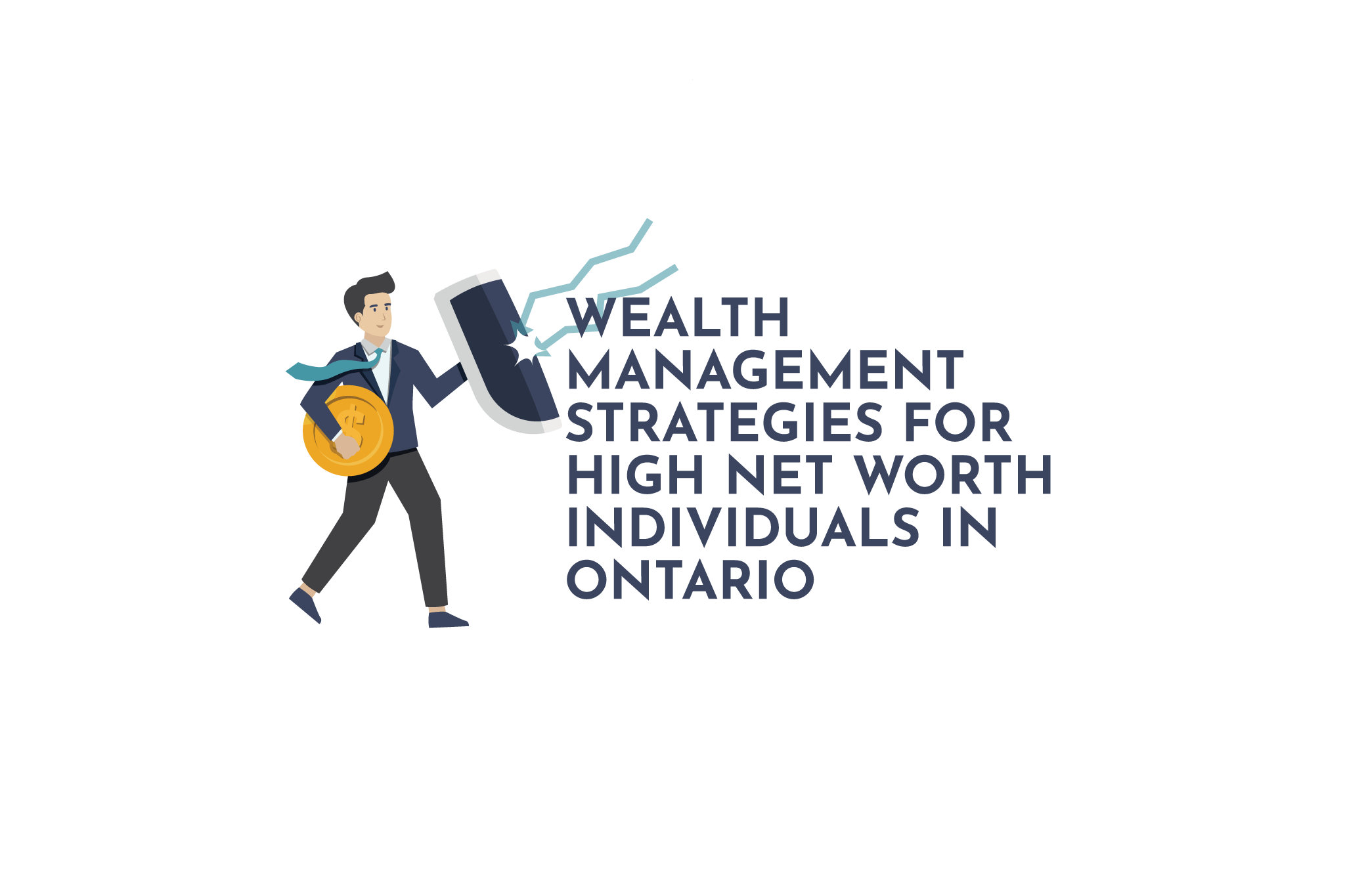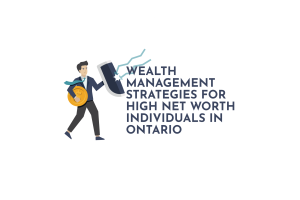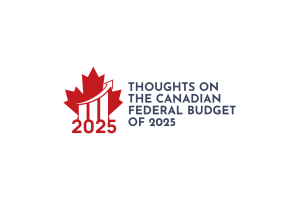If there is one common theme among high-net-worth individuals we speak with, it is that they feel heavily taxed by the government. In Canada, those who are fortunate enough to build successful businesses often find themselves facing significant income tax obligations.
If this applies to you, it is important to know that there are strategies available to help minimize the amount of tax you owe each year. High-net-worth individuals regularly take advantage of these strategies to protect their wealth and preserve more of what they have worked hard to earn.
Let’s take a closer look at some of these approaches.
In this article:
- Strategy #1 – Make sure that you work with a team of professional advisors
- Strategy #2 – Take advantage of tax-minimizing strategies and structures
- Strategy #3 – Take advantage of the rules that are in place
- Strategy #4 – Efficient Wealth Transfer
- Strategy #5 – Advanced Retirement Planning Concepts
- Conclusion
Strategy #1 – Make sure that you work with a team of professional advisors
Most high-net-worth individuals excel at what they do for a living. However, it is important to recognize that while you may be highly skilled in your chosen vocation, you may not fully understand the most tax-efficient ways to manage your business and personal finances.
By working with a team of experts that includes a financial advisor, a Chartered Professional Accountant, and a legal team experienced in corporate and estate planning, you can focus on what you do best while relying on specialists in other fields to apply their expertise. This not only helps ensure your finances are managed efficiently but also makes your life significantly easier.

Strategy #2 – Take advantage of tax-minimizing strategies and structures
There are several legal entities you can use to help maximize the tax efficiency of your business. For example, setting up family trusts, holding companies, and operating companies can create valuable opportunities for strategic tax planning. These structures allow you to better manage income, protect assets, and ensure that you are taking full advantage of the options available to reduce your overall tax burden.
- Family Trusts – A family trust is a legal entity where assets are transferred into the trust and managed for the benefit of its beneficiaries. This structure can provide opportunities for income splitting, asset protection, and other tax efficiencies, helping families reduce their overall tax burden while supporting long-term financial planning.
- Holding Companies – A holding company does not operate a business directly. Instead, it primarily owns investments such as shares in an operating company, real estate, or other marketable securities. Holding companies can be a valuable tool for tax planning, offering opportunities for income splitting, deferring personal taxes, and creating greater flexibility in managing business and investment assets.
- Operating Companies – Instead of operating as a sole proprietor, you can incorporate your business. By doing so, you gain the ability to retain earnings within the corporation at a lower tax rate rather than paying personal income tax on the full amount of income earned each year. This approach not only provides tax efficiency but also allows greater flexibility in how and when you take income from your business.
You should always review these options with your team of experts, including your financial advisor, Chartered Professional Accountant, and legal counsel. They can help determine which strategies are the most appropriate for your personal situation and ensure everything is structured in the most effective and compliant way possible.
Strategy #3 – Take advantage of the rules that are in place
There are tax rules in place that can help you reduce how much tax you owe, and simply understanding them can save you a significant amount of money. Here are a few examples:
- Timing Your Capital Gains: Recently this idea kicked up a firestorm. In June of 2024 the federal government introduced legislation that would have seen capital gains taxed at 66.67% for amounts over $250,000. Facing some significant backlash they backed down and in March of 2025 announced that the inclusion rate would remain at 50%. Make sure that you understand how much tax is owing when you make a ‘book-value’ capital gain into a taxable one. High income earning individuals in Canada can be susceptible to the calculation of the Alternative Minimum Tax (AMT) which is an alternative way that income tax is calculated when you earn preferentially taxed income. Capital gains count as this type of income so you need to work with your tax professionals to make sure that you aren’t surprised by an AMT bill that you didn’t even know was a possibility.
- Charitable Giving: Many types of investments can be donated to a charity in-kind. This means you transfer the ownership directly to the charity instead of selling the asset first. When you do this, you not only receive a donation tax credit for the full value of the asset, but you also avoid paying tax on any capital gains that have accumulated. This can create a powerful tax advantage while also supporting causes you care about.
- Using Corporate Dollars for Health Care Expenses: If you own an operating corporation, you can set up a Healthcare Spending Account (HSA). This allows you to make your personal health care expenses deductible for the business, while also receiving tax-free reimbursements. It is a much more efficient way to manage health care costs compared to paying personally with after-tax dollars.
There are many opportunities like these within Canada’s tax system, but the key is to work with expert advisors who can guide you. It is important to remember that these are tax planning strategies, not tax evasion. By understanding how the rules work and putting some thoughtful planning in place, you can become more tax-efficient and keep more of your money.

Strategy #4 – Efficient Wealth Transfer
With the deemed disposition rules in place when a Canadian taxpayer dies, the unfortunate reality is that there is often a significant amount of income tax owing on the terminal tax return. This burden can be magnified substantially when the deceased individual had a high net worth. To prepare for this, there are strategies worth considering:
- Use Life Insurance to Fund Taxes at Death: While you cannot avoid death or taxes (as Benjamin Franklin famously noted in 1789), you can plan ahead for how those taxes will be paid. Participating life insurance is an effective option because it not only provides a death benefit but also has the potential to grow over time through dividends. As your wealth grows, so does the payout from the policy, helping ensure your estate has the liquidity it needs when taxes come due.
- Explore an Estate Freeze: An estate freeze can be a powerful planning tool, especially for high-net-worth families. By locking in the current value of assets, you can “freeze” capital gains at today’s levels, making future planning easier and more predictable. This strategy can help ensure that wealth is passed on to the next generation in a more tax-efficient way. A discussion with your team of financial, legal, and tax advisors is essential to determine if this approach is right for your circumstances. As was mentioned earlier, tax rates in Canada are set by the federal government and are subject to change at any time. While the proposed capital gains inclusion rate increase in 2024 and 2025 eventually was cancelled, ask yourself if you truly believe that, had there not been an election called and a change in the leadership of the federal Liberal party, would they have backed down on this increase? Make sure that you consider the fact that historically, Canadian tax rates tend to increase and not decrease when you are planning with your team of advisors.
By taking the time to plan for your tax obligations at death, you help preserve more of what you have worked hard to build. This ensures your beneficiaries inherit your wealth as you intended, rather than losing a significant portion of it to taxes.
Strategy #5 – Advanced Retirement Planning Concepts
While you are likely familiar with the idea of RRSPs and the income tax relief they provide during your working years, it is important to recognize that as a high-net-worth individual, you may not benefit from them in the same way. Many people rely on the tax deferral advantage of RRSPs because they expect to be in a lower tax bracket during retirement. However, if you continue to earn significant income or draw substantial investment returns, you may still find yourself in a high tax bracket later in life, which reduces the effectiveness of this strategy.
Instead, you may want to consider alternatives such as:
- Individual Pension Plans (IPP) – An IPP can be a valuable retirement tool for business owners. Unlike RRSPs, IPPs allow for larger tax-deductible contributions that are fully funded by the company. This not only enhances retirement savings but also provides significant tax advantages. For a deeper dive into how IPPs work, take a look at our previous blog entry dedicated to this topic.
- Leveraged Investing – Another option is to explore leveraged investing. This strategy involves borrowing money to invest in non-registered investments. When set up correctly, the interest paid on the loan becomes tax-deductible, while the investment itself grows as tax-paid money. This can be a powerful way to create retirement assets that remain accessible without triggering heavy tax consequences.
- Retirement Income Planning – Tax efficiency doesn’t stop at saving—it also applies to how you draw income in retirement. Thoughtful planning can reduce the Old Age Security (OAS) clawback each year. For example, structuring RRIF withdrawals strategically can help smooth taxable income. Additionally, deferring your CPP and OAS payments can lead to enhanced benefits later in life, creating more financial stability for your retirement years.
- Participating Life Insurance – Corporately owned participating life insurance policies can also be an effective tool. These policies accumulate a tax-advantaged cash value over time, which can be used to create retirement income in a tax-efficient manner. Beyond retirement, they also provide estate-planning advantages by ensuring wealth is transferred efficiently to future generations.
Remember, retirement planning is essential for everyone, but it becomes even more critical when you have a high net worth. With larger assets and more complex financial structures, careful planning ensures your retirement unfolds in the most tax-efficient way possible. The goal is to maximize your lifestyle while minimizing the amount the government takes each year.
Conclusion
Let’s face it, taxation is only becoming more complex as time goes on. For high net worth individuals in Ontario, a holistic approach to financial planning is essential. This means working with a team of experts who can align strategies across tax laws, investment opportunities, and your long-term legacy goals.
The Strata Group of Companies offers exactly that. Through their strategic partnerships, you gain access to specialists in personal finance, corporate and personal insurance, accounting, mortgages, and employee benefits. By taking the time to discuss your goals and dreams today, you can ensure that the wealth you’ve built not only works for you now but also supports future generations.




